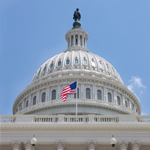The Fearless Fiduciary: Four More Years and the Travails of Dodd-Frank
To paraphrase our New Deal President Mr. Roosevelt, we apparently have nothing to fear but Dodd-Frank itself. All the finance industry pundits are buzzing about the notion that an Obama win means a full-court press on the financial services industry. By our reckoning, we are struggling to see that outcome — the idea of some massive shift in either the pace of implementation or the rigor of Dodd-Frank rules in general. In the view of this Fearless Fiduciary, it feels more like “Dud Frank,” but perhaps there is hope.
By most tallies, two-thirds of the massive legislation is stuck in neutral. So much was deferred and shuffled onto the SEC’s already overcrowded and underfunded agenda that it has choked off meaningful progress. Moreover, an exceedingly heavy financial industry lobbying effort has put up roadblocks at every turn. And an election year with politicians hungry for campaign funding was the perfect environment. As a direct result, the issues of systemic risk oversight, over-the-counter derivatives reform, “Too-Big-to-Fail” institutions, and something so seemingly straightforward as proper funding for regulators charged with overseeing the gargantuan Dodd-Frank effort all have fallen victim to Washington gridlock.
What will change this circumstance remains a puzzle. Many have referred to the election outcome as a “status-quo” result. We find ourselves with the same administration, same control of Congress, and same fiscal cliff with daunting tax and entitlement reforms consuming every ounce of legislative attention and creativity.
Yet, there is a glimmer of hope that “Dud” can become “Done” Frank — it is the new blood likely to emerge in key policy positions at Treasury, the SEC, on Congressional committees, and among other financial overseers. To be clear, we are not just looking to finish Dodd-Frank, hail it as a success, and check the box. After all, important debates and very critical details are yet to be resolved. We must even deliberate whether the law needs reopening and rejiggering. Dropping much of the bulk and complexity (i.e., 533 rules, 60 studies, and 93 Congressional reports involving 17 different regulatory stakeholders) unrelated to preventing another financial crisis might be a good start. While those opposed to Dodd-Frank as merely a “War on Wall Street” and atonement for taxpayer bailouts will continue to fight its advancement, the election may have partially blunted the credibility of that message. Make no mistake, we must have a crisis prevention plan, and soon.
For those of us interested in concluding work on a reasoned and appropriate crisis prevention framework, here’s hoping for less rhetoric and more honest and expedient Dodd-Frank action. Who knows, with four more years and the energy of new appointments and a commitment to properly calibrated financial regulation, anything is possible. I believe policy makers have a sworn obligation to taxpayers and markets globally to make sure that happens. As touted on CNBC, they need to “rise above” and get something done. We all deserve nothing less.


Good analysis. Well done.